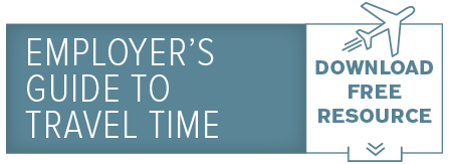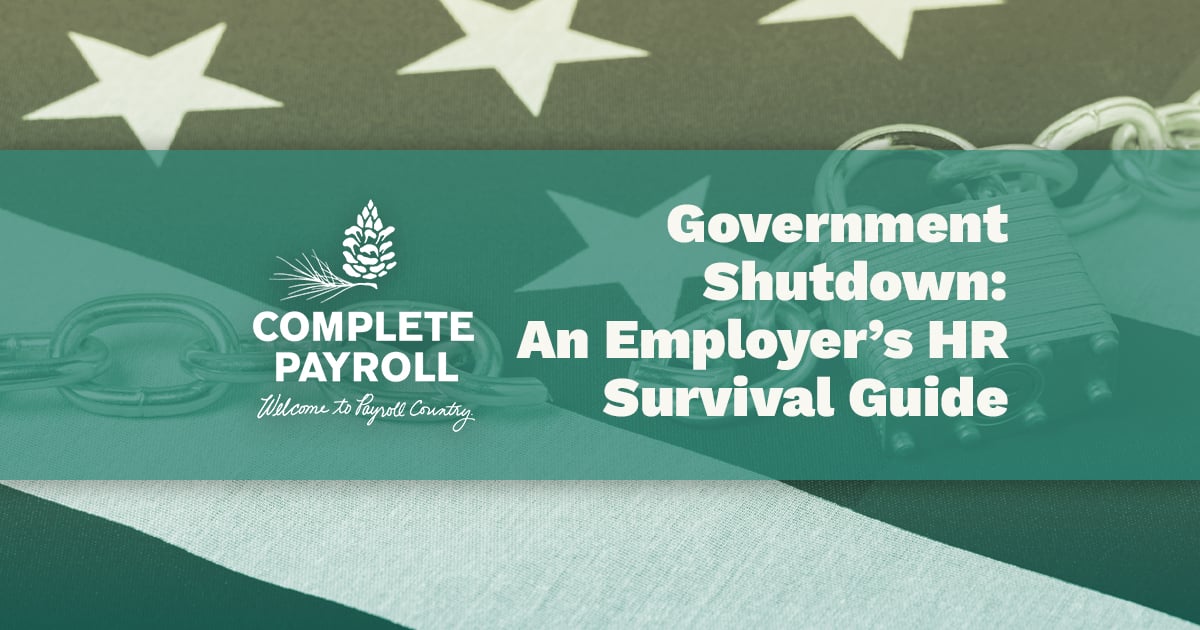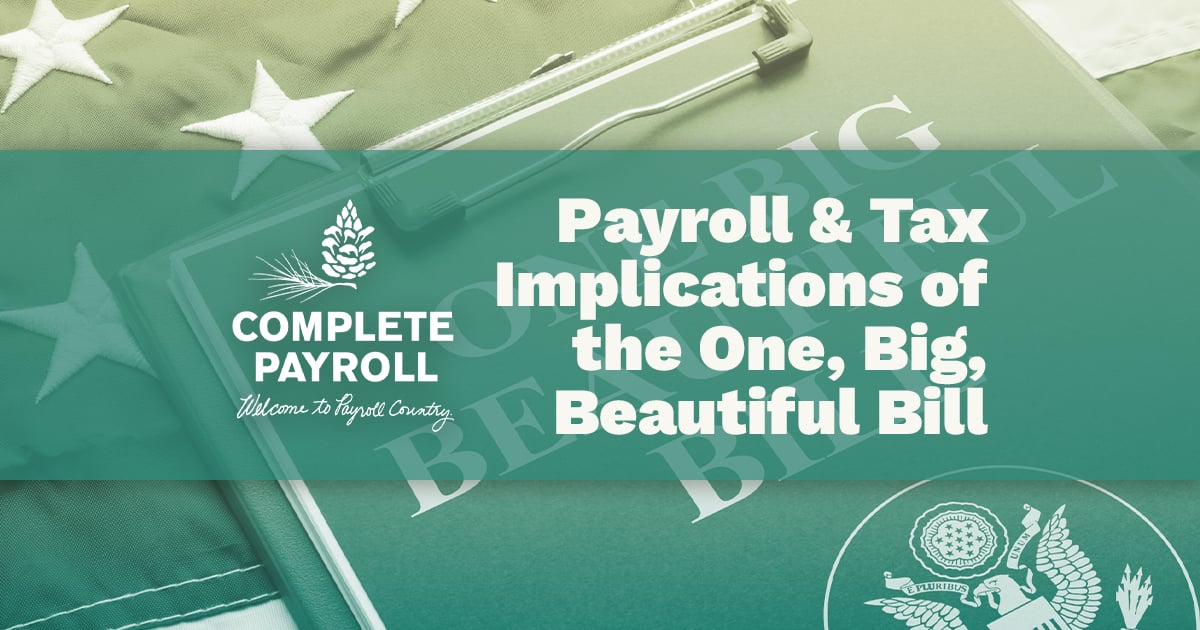
For many employers, sending employees out into the big, wide world to perform their job duties is an everyday occurrence. However, many employers are not aware of the situational details that may make time compensable or not compensable for non-exempt employees. Employers must consider both state and federal law surrounding travel time pay and then apply the most generous policy to the employee.

Home-to-work and work-to-home travel
Employers are not obligated to pay an employee for their time spent commuting no matter how far away they live. If it’s part of their normal commuting time, it’s unpaid.
Worksite-to-worksite travel
If an employee must travel in order to accomplish the day’s work this time counts as paid time. This is common for service and maintenance employees.
One-day travel to another city
Should an employee travel to and return from another city in a workday, that time counts as hours worked. However, the employer is not required to count the time that an employee would normally be commuting to their regular worksite.
Overnight travel
When an employee travels overnight on company business, hours spent traveling over the employee’s normal work hours generally count as compensable time (no matter what day of the week the employee traveled on).
It is key for employers to understand that the obligation for keeping track of hours worked for a non-exempt employee lies with the employer under the Fair Labor Standards Act. Most employers will pass this duty off to their employees. That, however, does not release the employer from its duty. If an employer had reason to know that an employee was working though the time was not recorded, the employer is obligated to pay for that time actually spent working.
In order to avoid confusion and misunderstandings, we recommend having a written policy on travel time pay that is distributed it to employees. Employers may also safeguard themselves from preventable issues if they go over the policy with an employee prior to the employee embarking on company travel. If the employee will not have access to the company’s time clock system while traveling, employers should provide them with a timesheet to record their hours as they are worked.
It is key for employers to understand that the obligation for keeping track of hours worked for a non-exempt employee lies with the employer under the Fair Labor Standards Act.
In addition to travel time pay, many employers get hung up on the many details surrounding employee travel. Below are a few of those issues and what obligations an employer has to its employees.
Per diem
Per diems are generally optional for employers. Travel time pay still applies when a per diem is provided.
Mileage reimbursement
Employers who provide a mileage reimbursement for maintenance, wear and tear on an employee’s vehicle must also pay the employee for the travel time. We typically recommend the standard IRS rate, which is currently 54.5 cents per business mile driven.
Different travel time rate
A different rate of pay for travel is allowed so long as the rate is not less than minimum wage. This should be clearly communicated in writing prior to the beginning of the travel.
Calculating overtime
An employer must count travel hours when calculating overtime pay for a workweek.
Wage and hour problems occur when an employer isn’t familiar with their pay obligations for non-exempt travel time pay. Knowing that compensation for travel time depends on the kind of traveling the employee is doing and when the travel time takes place, can help an employer avoid expensive omissions from an employee’s pay.

















 Get Instant Blog Notifications
Get Instant Blog Notifications


